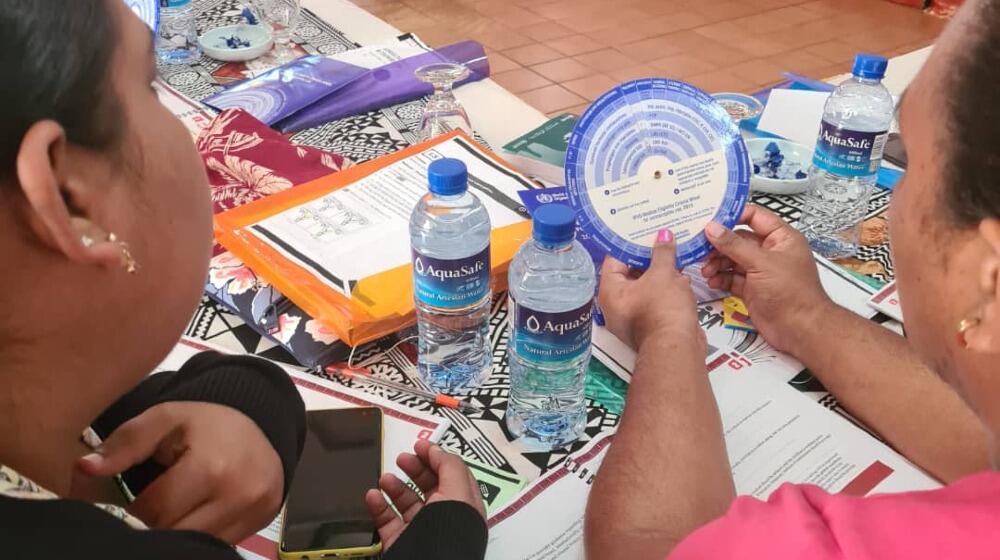Pacific Harbour, FIJI - "After I complete this Family Planning training by UNFPA, I am confident that I will be able to provide better advice to my fellow women who visit our hospitals in choosing the right family planning method that is suitable for them," said Ms. Alumita Cataki, a midwife from the Makoi Birthing Unit in Suva. She is among the 24 health service providers from 18 health facilities across Fiji’s Central Division who are currently participating in a capacity development workshop on family planning (FP) held at Pacific Harbour, Fiji, provided by the United Nations Population Fund (UNFPA) Pacific.
UNFPA’s family planning training in support of Fiji’s Ministry of Health and Medical Services (MHMS) started on 8 September, funded by the Government of Australia. This is a follow-up to an earlier training that UNFPA provided in 2020 to 31 Family Planning trainers in Fiji on the newly developed Adolescent Friendly, Disability Inclusive and Gender Responsive Family Planning training package, with support from Family Planning New South Wales (FPNSW). The training package is designed with a client-centered approach focusing on rights-based provision of family planning services. This year in 2022, Fiji MHMS is rolling out this integrated training package to health service providers using a ‘cascade model’ that includes a refresher Training of Trainers (TOT) for these master trainers who were trained in 2020, followed also by separate training to health care workers who have not been previously trained.
The cascade training in the Central Division is the first of four such trainings scheduled to be rolled out this year by the Ministry of Health and Medical Services, with the support of UNFPA Pacific. “Demystifying and overcoming health care workers' own bias regarding the provision of family planning services, through quality-assured training is one of the key accelerators in reducing the high unmet need for family planning in the Pacific, especially for vulnerable and marginalized populations in hard-to-reach areas,” explains Dr. Titilola Duro-Aina, UNFPA Pacific’s Chief of Health (Sexual and Reproductive Health and Rights Technical Advisor) who is leading the family planning training. The training this time will be concluded on 21 September with a three-day hands-on practical sessions organized on site at various family planning clinics across the Division.


